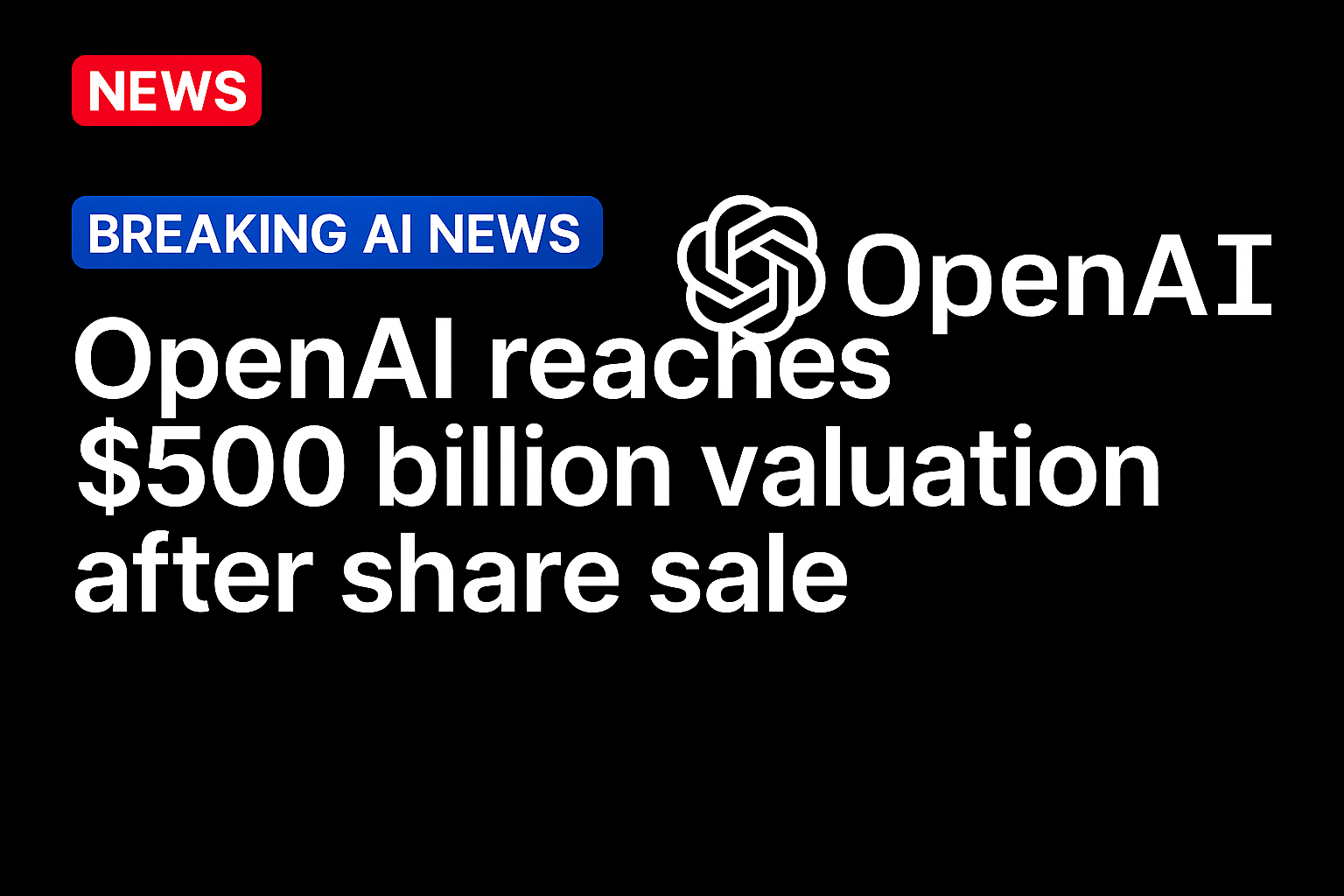
OpenAI has reportedly become the world’s most valuable startup following a share sale.
The artificial intelligence (AI) company allowed current and former employees to sell roughly $6.6 billion in shares, the Financial Times (FT) reported Tuesday (Oct. 2), citing a person close to the company.
That deal values OpenAI at $500 billion, ahead of SpaceX, which achieved a $400 billion valuation in July.
OpenAI had been valued at $300 billion after a $40 billion deal with Japan’s SoftBank in March. Sources told the FT that executives had begun talks with investors about an employee share sale at the much higher valuation a few months later.
The company had allowed employees to sell up to $10 billion of their shares, but many chose not to sell, the source close to the company said, attributing this to workers’ confidence in the future of the business. The source added there was demand among investors for more than $10 billion of the shares.
The FT report characterizes the share sale as the latest indication of the strong appetite for AI, with investors hoping that the top company in the field will eventually be worth trillions.
In a record deal last month, chipmaker Nvidia said it would invest up to $100 billion in OpenAI in return for the startup using Nvidia’s AI chips for computing capacity.
In other AI news, PYMNTS on Tuesday (Oct. 1) examined GDPval, a benchmark introduced by OpenAI that is the first large-scale attempt to determine whether frontier AI models can perform professional-grade tasks. The benchmark evaluates leading AI models on 1,320 tasks from 44 occupations in nine industries accounting for $3 trillion in U.S. wages.
The tasks in question are professional deliverables such as financial forecasts, healthcare case analyses, legal memos and sales presentations that would take a human expert an average of seven hours to complete.
“When judged blindly against expert outputs, leading models showed near-parity,” PYMNTS wrote. “Claude Opus 4.1 produced deliverables rated equal to or better than human work in 47.6% of cases, particularly excelling at aesthetics like slide layout. GPT-5 led in accuracy, following instructions and handling calculations reliably.”
This evidence, the report added, is in keeping with PYMNTS reporting on how companies are beginning to reconfigure workflows. PYMNTS Intelligence research finds that 98% of executives surveyed now expect generative AI to streamline workflows, compared to 70% last year.
“Nearly as many (95%) anticipate sharper decision-making,” the report continued. “Similarly, in healthcare, early AI deployments in billing and coding show measurable ROI, but executives consistently cite accuracy and liability as gating factors.”
Source: https://www.pymnts.com/

